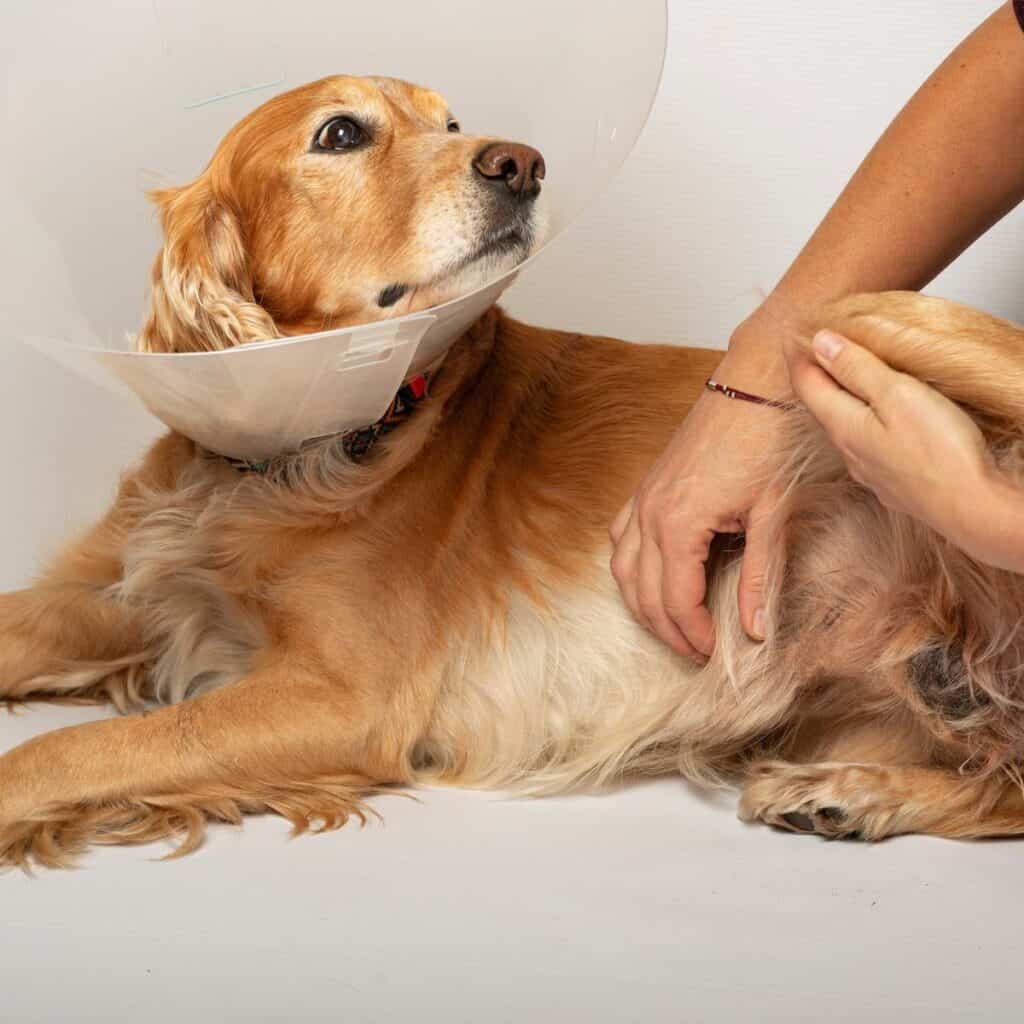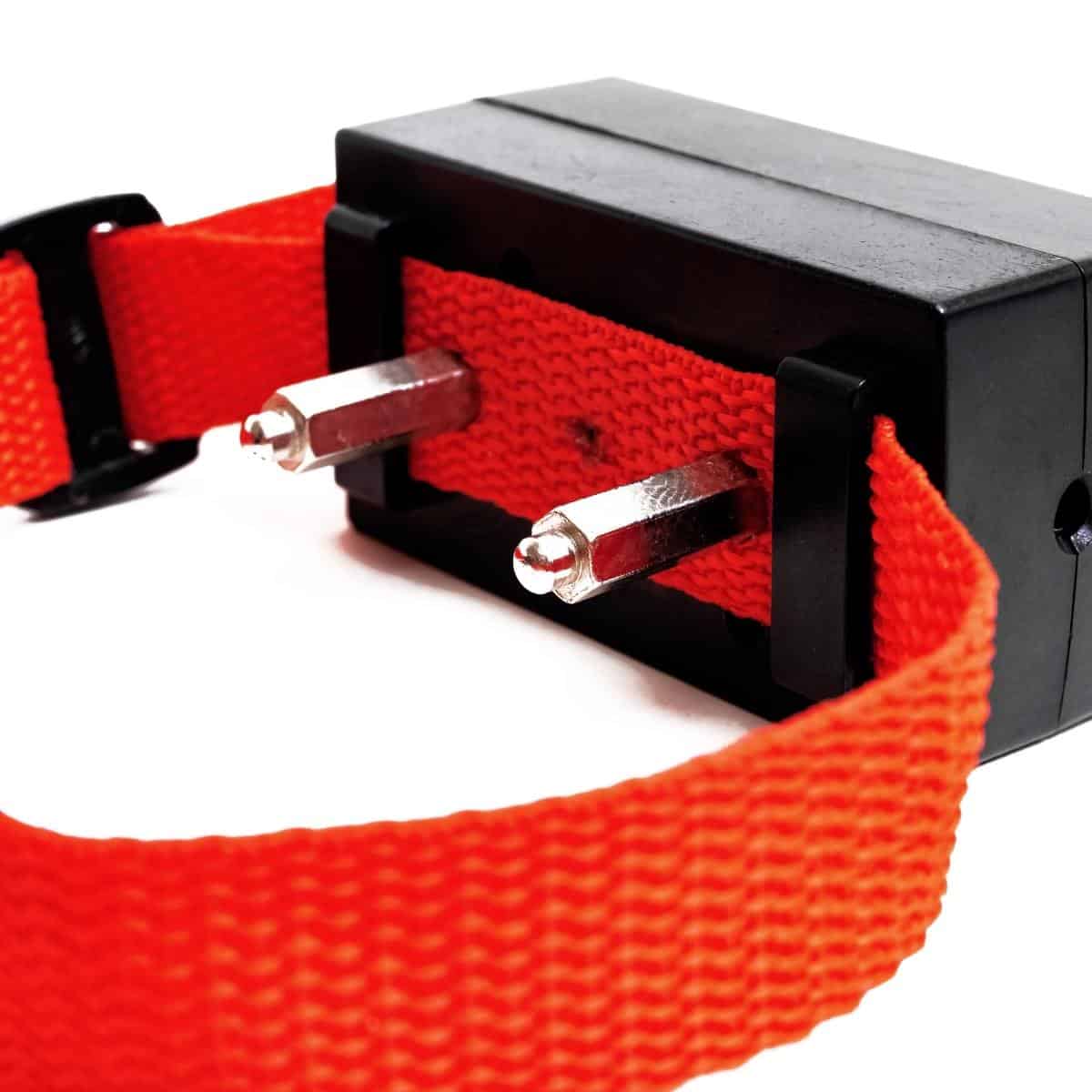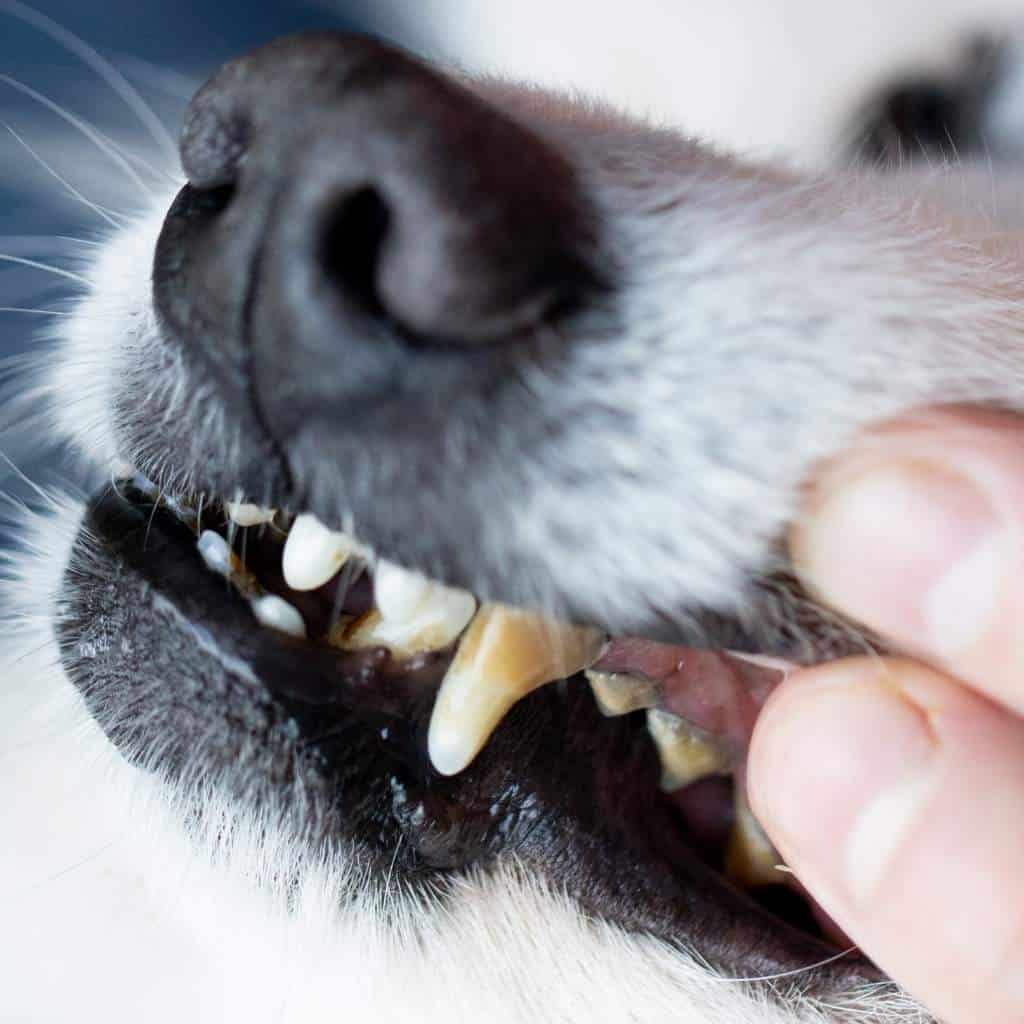Is It Too Late to Have Your Dog Neutered?
Is it ever too late to make the decision to have your dog neutered? If you have a boy pup, that’s a question you may have been wondering about! Let’s talk about it!

*This post contains affiliate links. We may earn a small commission on qualifying purchases at no extra cost to you. If needed, read our disclosure policies.
To be a responsible pet owner, you need to maintain your dog’s health and happiness. This means regular vet check-ups, good nutrition, frequent dental care and lots of love, but it also means neutering your dog if you have no intention of breeding.
Neutering, also known as castration, is a surgical procedure in which both of the male dog’s testicles are removed, making them incapable of reproducing. This process not only helps lower the population of homeless dogs in animal shelters, but it also has many health benefits for your dog.
Neutering your dog prevents testicular cancers, lowers their risk of prostate issues, keeps them safe from wandering away from home, and it can help calm your dog’s behavioral issues.
At What Age Should a Dog Be Neutered?
There are many factors that determine what the right age is for a dog to be neutered, such as breed and health conditions. Because of this, the age recommended will differ from dog to dog, and it’s best to talk with your vet and your unique situation.
Most veterinarians agree that the ideal time to neuter a dog is between six and nine months, but a puppy can technically be safe to neuter as young as eight weeks old.
The age a dog should be neutered is influenced by the age they start to mature. For smaller breeds, this is typically younger than the six-month mark. For larger breeds or giant breeds, this could be as late as a year old or longer.
If a dog is neutered before they reach maturity, they’re at a higher risk to develop phobias, aggression, and reactivity as an adult.
Large breeds can also see an increased risk of knee injuries and other orthopedic and joint disorders if they are neutered before their bone growth is complete.

When Is It Too Late to Neuter a Dog?
Luckily, there is no specific age that’s considered too late to neuter your dog. Even senior dogs in good health can be neutered with minimal health risks.
The main factor to consider is your dog’s current health. Because neutering is a surgical procedure that requires anesthesia and recovery time, this raises concerns for older dogs and ones with health conditions.
Before deciding if neutering is right for your dog, your vet will want to examine them, take blood work, and run a few diagnostic tests to determine if it’s safe for your dog to undergo anesthesia.
Once you have the approval of your vet, your dog can get neutered, no matter what age they are.
Signs Your Dog Needs to Be Neutered
Because of the risks of neutering too young, it’s important to know and watch for the signs that your dog is maturing. When you see these signs, it’s time to talk with your vet to find out if they’re fully ready for the procedure.
As your dog matures, their hormone levels, testosterone levels, in this case, increase. These changes in hormones affect your dog’s behavior, and you’ll see them start to display dominant behaviors.
A few common signs that your dog needs to be neutered include:
Getting A Dog Neutered: What to Expect
Before the Surgery
Prior to the surgery, your dog will be examined by your veterinarian. They will run a blood test and exam your dog’s overall health to make sure it’s safe for them to undergo anesthesia. They will also give you a list of other procedures that can be completed while they are under sedation such as dental cleanings, nail clipping, anal suppression, etc.
If your dog is healthy, your vet will send you home with instructions to prepare them to be neutered. Typically, these instructions are to withhold food 8 hours before the surgery, but this might differ if you have a young puppy that needs their nutrition.
During the Surgery
Your vet will first administer anesthesia for your dog, most likely through IV fluid. They will also give your dog a breathing tube to administer oxygen.
Once your dog is fully under and stable, the vet will make a small incision in your dog’s scrotum. From there, they will remove both testicles and then close the incision, typically with absorbable internal sutures.
In most cases, your dog will be ready to come home on the same day as their surgery.

After the Surgery
Your dog will need plenty of rest following surgery to recover. Your vet will give you specific post-op instructions, and they will restrict your dog’s activity for five to ten days so that your dog can fully heal. This means no running, jumping, or intense playing.
You can still walk your dog short distances, but it’s best to keep activity levels to a minimum. If your dog gets restless, puzzle toys and mental enrichment are great ways to tire them out without physical exercise.
For the most part, your dog will be low energy during the recovery period, especially in the first few days. Let them sleep as much as possible, and make sure they have a warm, comfortable place to rest.
Your vet may also send you home with an Elizabethan collar to prevent your dog from licking the incision while it heals. Licking the incision can lead to infection, so it’s important for them to wear the cone, no matter how much they might protest. If your pup isn’t keen on the collar there are other solutions such as surgical bands and soft collars that provide the same result, but are a little more comfortable.
You’ll also need to avoid swimming or bathing during the recovery period, as this can affect the sutures. We were told you could give them a bath 2 days after the post check up appointment.
It’s also possible you will notice that your pooch doesn’t have much of an appetite for the first couple of days. This is especially true if pain medications are administered.
Side Effects of Getting Your Dog Neutered
Neutering is a routine procedure, but it does still carry typical surgical risks, such as complications from anesthesia or medications. This risk can be higher in older dogs, overweight dogs, and dogs with preexisting conditions.
Neutering your dog before they reach maturing can also put them at a higher risk of:
While some pet owners worry that neutering leads to obesity in dogs, this isn’t the case. A dog’s metabolism naturally slows as they age, and neutering may help accelerate this process. However, with the right amount of exercise and nutrition, your dog can stay at a healthy weight, even while neutered.
It’s also worth mentioning that veterinarians are unsure of what causes prostate cancer. There have also been studies that prostate cancer is more likely to develop in neutered dogs vs. intact. However, the surgical procedure does not cause the cancer. Is it because they live longer than intact dogs? We aren’t really sure because there are so many variables including environmental factors, diet, nutrition, exercise, and genetics. Prostate cancer is rare for canines, so that’s a good thing!
Frequently Asked Questions
Some studies show that dogs that have been neutered do live longer because there’s no worry for testicular cancer and less issues with the prostate. Once males have been fixed, they are also less likely to roam around chasing females in their heat cycles, which means less risk of environmental factors.
Yes it is possible. This is because they could under injectable sterilization (this reduces testosterone and kills the sperm) while still keeping the parts. The other scenario could be a vasectomy, where he has been clipped. So while the male cannot get a female pregnant, they may show the same signs and behavior as an unneutered dog. Surgical neutering is still the most common and the best in terms of preventive measures.
Is It the Right Time to Neuter Your Dog?
Neutering your dog, if you have no intention of breeding them, is the responsible thing to do to keep your pet healthy. If you’re interested in having your dog neutered, the best option is to talk with your vet about your unique situation.
With knowledge of your dog’s breed and current health condition, your vet can make expert recommendations on the best time for you to neuter your dog.









